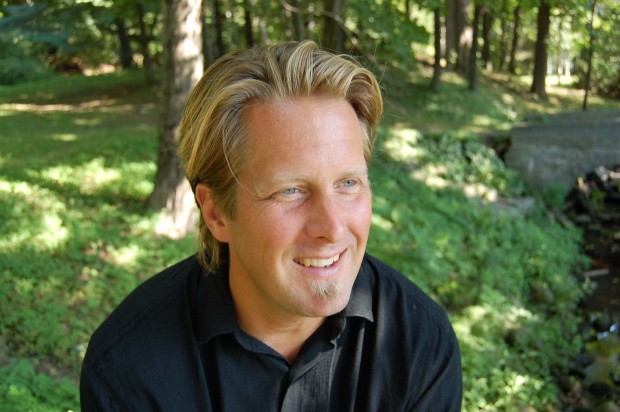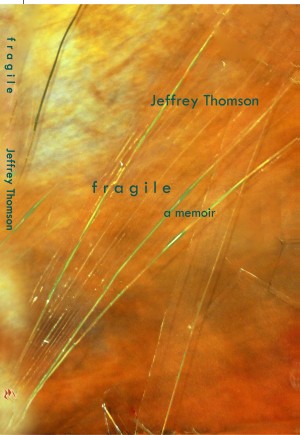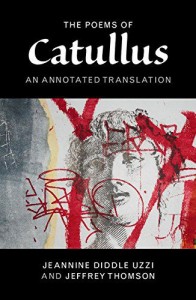Table for Two: An Interview with Jeff Thomson, Poet and Memoirist
categories: Cocktail Hour / Table For Two: Interviews
1 comment

Jeff Thomson is a friend of mine, and lives in the same small town in Maine, which is Farmington. His poetry and now his memoir echo out into the world, however. Jeff spent a Fulbright year in Ireland, and returns to Costa Rica frequently both for surfing with his son and teaching a college course in the rain and cloud forests there. He’s a birder and athlete and likes a pint of beer. He’s a translator, too, and has published a juicy edition of the poetry of Catullus, rendered from the Latin. For our Table for Two meal—a fantasy, of course—he suggests the deck of the Corcovado Tent Camps adjacent to the back entrance of the Corcovado National Park (which is little more than a tapir path). So we’ll sip a couple of boozy drinks while looking over the Pacific, the primordial green of the Pacific coastline running for miles in both directions. Scarlet Macaws overhead. Spider monkeys in the wild almond. Crocodiles lying on the beach like distant logs, ceviche and patacones and margaritas made from fresh mandarina juice.
Jeff: Welcome to the Osa Peninsula.
Bill: I like. And I’ve been near here once with my family at Luna Lodge, which you kindly suggested, too. Extraordinary place. Meanwhile, warm congratulations on your memoir, Fragile. Could you tell us a little about it?
 Jeff: The short answer is that fragile is about all the times I almost died. Seriously. The longer answer is that it starts with a mountain biking trip I took to Costa Rica when I was 22—I rode up the Mountain of Death, literally—and then it ends with my heart surgery and recovery a few years ago. In between the are a number of different, dangerous adventures in the rainforest and in the deserts of the American West. I also spend a lot of time wandering and thinking and teaching and learning about place and landscape and language. Discovering that these ideas are all far more complicated than we think they are and even more so how they are all tied together. And each adventure—each encounter with mortality—complicates the narrative further. In some ways, it is a typical American nature story—guy goes out into the wild and learns about the world and himself in the process of his adventures. But, I am also trying to complicate that kind of narrative, since I also talk about the return to the city and my home, and the real danger of my life—which was my own heart and the damage I was walking around with, unknowingly.
Jeff: The short answer is that fragile is about all the times I almost died. Seriously. The longer answer is that it starts with a mountain biking trip I took to Costa Rica when I was 22—I rode up the Mountain of Death, literally—and then it ends with my heart surgery and recovery a few years ago. In between the are a number of different, dangerous adventures in the rainforest and in the deserts of the American West. I also spend a lot of time wandering and thinking and teaching and learning about place and landscape and language. Discovering that these ideas are all far more complicated than we think they are and even more so how they are all tied together. And each adventure—each encounter with mortality—complicates the narrative further. In some ways, it is a typical American nature story—guy goes out into the wild and learns about the world and himself in the process of his adventures. But, I am also trying to complicate that kind of narrative, since I also talk about the return to the city and my home, and the real danger of my life—which was my own heart and the damage I was walking around with, unknowingly.
Bill: Your heart plays a large role in the book, both figurative and actual. Did your heart operation change the way you see the world? The way you see yourself? The way you gauge the human condition?
Jeff: We talked once, I remember, before my surgery, and you said that heart problems are very emoitional in a way that other physical problems aren’t. And I think that’s right. I mean, our hearts are so protected, there, right there, behind that thick wall of bone in pretty much the center of our bodies. To have that cover removed and allow someone into the center of your self is a terrifying feeling. Metaphorically of course, but also in this case very physically. There was a part of me that seriously thought I wasn’t going to wake up from the surgery. The rational part of me understood the odds. It knew the surgeon was very skilled. It knew that the surgery is not as dangerous, really, as driving down to the hospital itself. But, still, it had to drag that scared, weepy part of me down to Boston and to the hospital.
So, yes, it did change the way I see myself. There’s obviously this very real fragility to our daily, walking-around selves that I am conscious of, but at the same time there is a tremendous resiliency in us. In these remarkable machines we live inside and inhabit. And I think that you have to see both those traits at once if you want to see us clearly as a species. We are tough and frail at the same time, robust and brittle. Our own negative capability, if you will. I’m trying to make this not into a cliché—young poet becomes aware of his own mortality, right?—but it is a little bit cliché and I am becoming ok with that. Maybe that’s part of the process too. Accepting one role in a larger, repeating story.
Bill: You’re well known and successful as a poet–why the memoir at this time? Does your poetry inform your approach to memoir?
 Jeff: It is all our friend Wes McNair’s fault. He and I were sitting drinking whiskey and eating peanuts at his camp one summer—maybe six years ago now—and he was talking about his memoir and told me that the next step for me was a book of prose—essays or memoir. And I resisted that idea. Immediately, and then for a while afterward. But after a few months of holding that idea in my head, and after I allowed the reality of it to sink in, I realized I was resisting out of fear. I was scared of the scale. I was scared of the challenge. So I took a few essays I had written already, mostly about landscape, and started to develop and re-write and expand them.
Jeff: It is all our friend Wes McNair’s fault. He and I were sitting drinking whiskey and eating peanuts at his camp one summer—maybe six years ago now—and he was talking about his memoir and told me that the next step for me was a book of prose—essays or memoir. And I resisted that idea. Immediately, and then for a while afterward. But after a few months of holding that idea in my head, and after I allowed the reality of it to sink in, I realized I was resisting out of fear. I was scared of the scale. I was scared of the challenge. So I took a few essays I had written already, mostly about landscape, and started to develop and re-write and expand them.
Then, I started to write the first of many, many drafts of this project. It was a long time coming into being and that’s in some way because of poetry. Honestly, at first the book was more like a long prose poem—fragmented and lyric—far more so than it is, even now. And the work of writing it and shaping it into a readable and honest memoir became—really—a process of learning how to write prose well. How to write scene and define character, how to keep the reader in the moment and stay out of my own head (I don’t entirely succeed in that, I know). But that process was incredibly rich for me and fulfilling. I imagine it is something like learning a new instrument when you already play music. New possibilities in tone and sound and timbre.
Bill: How did you handle the question of others in your memoir? Have you had any reaction from people in your life that you’ve turned into characters here? Were there any portraits that worried you as the book became public?
Jeff: I haven’t had any reaction, yet. I changed a few names to protect people’s identities, but other than that, no. I think the only person in the book who might have cause to complain about his portrayal is me. I try to hold myself up for a close inspection, and in some cases I end up looking pretty silly. But that’s ok, I think, I was a pretty silly young man.
Bill: What’s your best writing day like? What’s a real writing day like?
Jeff: My best day is when the words come like water and flow unimpeded and hours go by like minutes because I am in the world that I am writing so fully that it seems to be the real world and our day-to-day world is only a dream. But that doesn’t happen every time. It doesn’t even happen most days. Most days I put some words down and sit back and look and try to see what it is I am doing with them. And then repeat. Slowly. So slowly. Word by word, paragraph by paragraph. Like building a very deliberate wall out of very heavy bricks. Or I go back into something I have already written—revision is so much more enjoyable for me, now—and try to find the gaps or the places where I need more depth or where I am vague and unclear. This is part of the process, too, learning to read myself with the eyes of others and not assume anything on the part of the reader. To try and be willing to see my words in her eyes and understand what I need to do to evoke the emotion I am working towards in her.
Bill: What are you working on now?
Jeff: I am working on a novel called Self Portrait in Nine Generations. It’s a historical story told in alternating, personal voices and historical whispers based around my ancestors’ experience leaving Scotland and Ireland and advancing into this novel concept called America. This story is fiction, but based on the real lives of two of my people, Anne and William Thomson, who emigrated from Scotland to the colonies by way of Northern Ireland. I spent a time in Belfast, Northern Ireland, and at a library at Brown University doing tons of background research. I have finished a second draft. The end of the year was the deadline I gave myself—and now I’m going to show it to a few people and get some feedback and see if it is worth anything at all.
Bill: Surely it is! Poetry, translation, nonfiction, and now fiction. You’ve reached home base. Could you talk about the differences and similarities among the forms as you approach them? What comes easy? What’s difficult? What’s impossible.
 [A blue morpho butterfly floats past. We sip our margaritas]
[A blue morpho butterfly floats past. We sip our margaritas]
Jeff: I don’t know if I am on home base yet. Maybe if the novel really turns into something. Poetry has always been my first love and comes the easiest. I trust myself and understand—sometimes, most of the time—the moves I am making and why. It’s about crossing the gap between what cannot be said and what needs to be said. Getting to that charged place of ruin we all carry within us. There’s an electricity to it when it feels right. And translation is another form of that. Taking someone else’s finished words and trying to find their equal in English. It’s a bit more like working out a complicated puzzle, but it’s also pretty thrilling when I get it right.
Prose, as I said, is different. Poetry is compact. It demands intensity. Prose takes more patience. Things unfold slowly—both in terms of the length but also the very idea of the paragraph and the narrative arc. I wrote prose before the memoir, obviously, but it was analytical and scholarly, or rhetorical. It wasn’t artistic prose, which follows different rules and demands a different approach. A different kind of eye. Writing fragile taught me a lot about working in this kind of prose and I was able to translate those skills—luckily—into the novel. I don’t think I could have finished a first draft of a novel without having gone through that very steep learning curve that I encountered writing the memoir.
Bill: What other arts and activities inform your vision?
Jeff: Music and visual art are really important for me—especially in my poetry—I try to bring them into the world of the poem on a regular basis. The sound of word and the power of the visual image feel equally necessary for me in my work, and those qualities that I find in visual arts and music translate most fully into my poems—poetry has more elasticity to take other media into its realm.
The physicality of the natural world is important, too. Being out in it. Traveling. Thinking about the vast layering of history and myth and story that lives in inside and below our consciousness. I think in my prose I am really invested in evoking place and landscape and the feel of the physical world. Not just the surface sense of things, but some deep and essential there-ness about the world and what we make of its particulars. And those particulars and both human and non, geographic and historic. There is so much there there, and finding it and bringing it into the mind of the reader is a pretty remarkable and lucky way to spend a life.
Bill: Is that an anteater?
Jeff: That’s an anteater.


Great interview guys–and the Osa Peninsula, wow, was fun to be there.